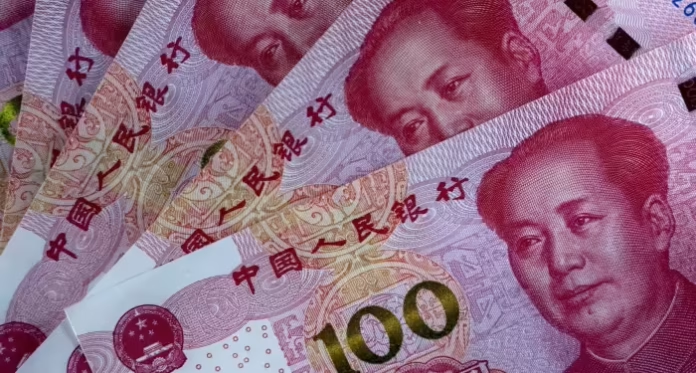The Chinese Yuan, or renminbi, reaches a 16-month low as markets react to uncertainties surrounding the upcoming inauguration of U.S. President-elect Donald Trump for a non-consecutive second term.
On Wednesday, the renminbi dips by 0.1%, trading at Rmb7.34 against the dollar, marking its weakest level since September 2023. This occurs despite the People’s Bank of China (PBoC) maintaining a steady daily exchange rate fixing.
The currency is currently approaching the lower limit of the 2% trading band permitted by the central bank, which reflects increasing market pressure.
The decline in the renminbi is linked to fears that Trump’s proposed tariffs on Chinese goods could lead the PBoC to devalue the currency to protect export competitiveness. Exports remain a critical factor in supporting China’s economic growth amidst weak consumer spending at home.
Wee Khoon Chong, a senior strategist at BNY Mellon, comments, “The market is eager for a significant shift in the renminbi.”
Chinese stock markets also experience a downturn. The mainland CSI 300 Index falls by 0.3% on Wednesday, while the Hang Seng Index in Hong Kong drops 1.1%.
The PBoC sets the fixing rate for Wednesday at Rmb7.1887 per dollar, almost unchanged from Tuesday’s Rmb7.1879. However, the renminbi faces additional pressure after strong U.S. economic data bolsters the dollar.
Experts suggest that the PBoC is focusing on maintaining a stable exchange rate while awaiting clearer signals on Trump’s trade policies. They caution that even slight adjustments to the fixing rate could spark a significant sell-off of the currency.
Key Developments
- Trump’s Tariff Plans: Trump reiterates his intention to impose tariffs of up to 200% on Chinese goods if China escalates tensions with Taiwan.
- Policy Ambiguity: The incoming administration has not provided detailed plans for the tariffs, adding to market uncertainty.
- Inauguration Details: Trump is set to be sworn in as the 47th President of the United States on January 20 in Washington, D.C., marking a historic return to the White House for a second term.
The financial markets remain on edge as they await clarity on trade strategies and their implications for global commerce and currency stability.













